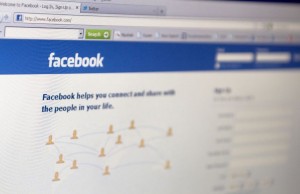Losing My Religion and Going Public on Facebook
 Photo by tomxox / 123RF
Photo by tomxox / 123RF Lots of people lose their religious faith and just keep quiet about it. They have great reasons for doing so. Entire communities and family relationships are built on agreement that God is real. Publicly express doubt and you risk becoming an outcast in both social and family circles. Thus, many people go through the motions. What’s the harm in believing a beautiful lie?
The problem for me was that the lie’s not harmless. Scratch the surface and you quickly expose a dark underbelly of rules designed to keep people in bondage: Women are to be submissive to men. Gay relationships are abominations. Natural sexual urges are sinful. This life is relatively meaningless compared to the afterlife. Suffering is purposeful and justified. And so on. This system of beliefs is not only harmful but, pushed to extremes, can result in devastation on a societal scale. Truth matters after all.
When I walked away from my faith and decided to go public, doing it through social media was a natural way for me to do it. For me, Facebook is a kind of “truth serum”—a place where people air all kinds of things, from trivial (what they just prepared for lunch) to intense (political and religious debates). I had used it a great deal over the years to air my challenges to skeptics in a public forum, so I thought it was only fair to use it as the platform for my admission that I was now convinced I’d been wrong.
I began by publicly announcing I was separating myself from religion and letting people know that in the days that followed, I would be outlining the high points as to why I no longer believed in the supernatural. I tried to be painfully honest about my fears in going public.
I was met with enthusiastic support from my nonbelieving friends, surprising comments from many closeted atheists who agreed with me but couldn’t go public for various personal reasons, and predictable responses from my Christian friends. To them, my initial statement was seen as a lack of faith on my part. If I had only prayed harder, or prayed the right prayer, this would not have happened. Others tried to reframe it as a phase that I would soon come out of, with my faith all the stronger for it. But as I explained to them, sometimes on multiple occasions, I was a nonbeliever because of a determined search for truth. Their easy answers were not going to bring me back, and I was going to explain why.
I then launched into a series of short writings that laid out the framework for my deconversion, starting with philosophy and Pascal’s Wager that we lose less by maintaining that God exists. I explained why Pascal’s Wager is not only wrong—it is devastatingly harmful on a societal level.
Even from these early posts, the accusations started to fly. My critics accused me of only believing what I wanted to believe. They impugned my motives, wondering what the point was of coming out in public at all. They questioned whether it was better to believe, even if it wasn’t true.
After philosophy came theology. Coming from a fundamentalist background, biblical inerrancy was a huge part of my faith puzzle. My second deconversion post questioned the idea via Christianity’s most sacred cow: the virgin birth. As I explained the history of the mistranslation of Isaiah 7:14 by the writer of the gospel of Matthew, the commentary began to get angry and personal. Some accused me of being too smart for my own good and let me know that hell awaited people like me. Others again questioned my motives and raised suspicion as to why I had not brought this up before, even if I had been aware of it for two decades.
My next post took on creationism via the science of virtual particles, a phenomenon in which matter and anti-matter particles simply pop into existence out of thin air. It was fascinating to me that my Christian critics for the most part did not respond to this point. As I would experience multiple times throughout the experience, it was often their silence that spoke the loudest.
Issues that followed, sometimes across multiple posts, included:
- Faith and personal experience—is it honest to believe despite evidence, or should we be looking at the best available evidence and taking the next logical step? Is personal experience a good indicator of the existence of the supernatural?
- Morality—is an outside moral lawgiver required to explain moral behavior, or can we look at things like the Nash Equilibrium and explain it via natural selection? Also, does the Bible present a truly moral deity in the first place?
- Apologetics—or more accurately, faults in common apologetic arguments, including criticisms of evolution via natural selection, the Second Law of Thermodynamics, and arguments from design.
- Humanist morality vs. biblical morality—which one do most Christians actually practice today?
- Why I’m not worried about hell even if I’m wrong about God.
All of this, plus short essays detailing my intellectual and emotional departure from faith, are covered in just over 100 pages in That’s Me in the Corner: Coming Out as an Atheist on Facebook. If someone like me can leave faith and embrace a supernatural-free life, anyone can, and they should be able to do so without fear. It’s my hope that, for some, this book can be a guide to going public with one’s search for truth.
